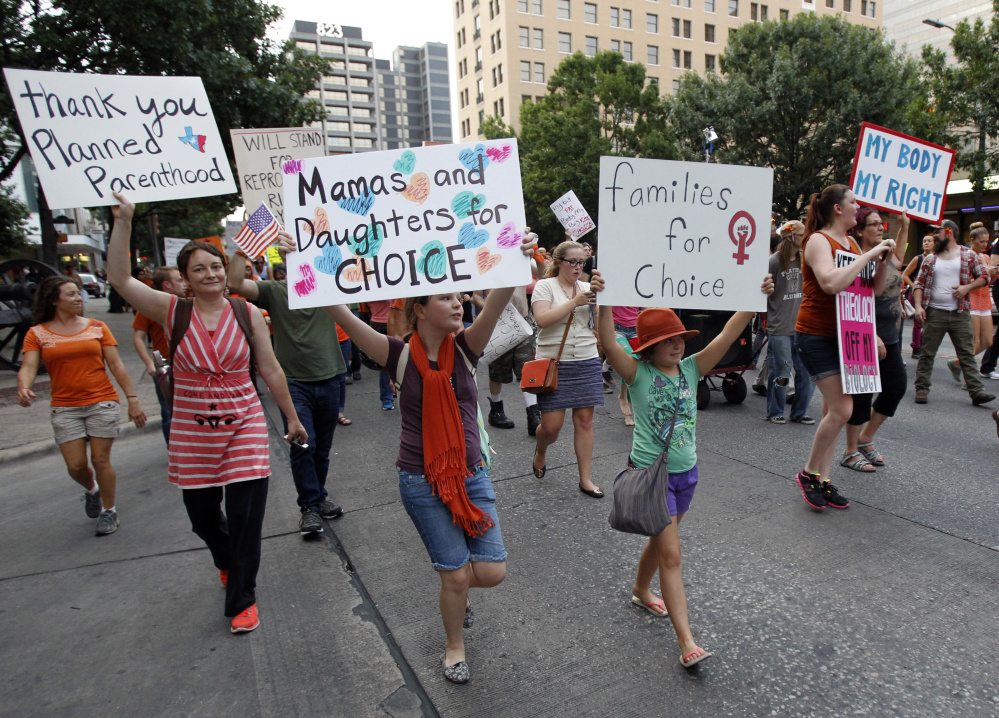If you follow campaign coverage at all, you’ll likely see or hear the term “pro-life” presented alongside the term “pro-family.” But on the anniversary of the passage of a near-ban on abortion coverage for poor women, new research makes a solid case that the best interests of families are better served by allowing all women, regardless of income, to make their own decisions about whether to become a parent.
Friday marks the 40th year of the Hyde Amendment, which blocks federal funds from going to pay for abortion unless the pregnancy endangers the woman’s life or is a result of rape or incest. Thirty-five states, including Maine, follow the federal standard for public insurance coverage of abortion.
The ACLU of Maine is suing to restore abortion coverage for Medicaid recipients in Maine. The group justifiably argues that the Hyde Amendment ban discriminates against poor women – who are also getting little help from policymakers as they struggle to balance family responsibilities and workplace obligations.
Some states have gone beyond Hyde and put further limits on abortion coverage, excluding the procedure from state-employee insurance, private health plans and Affordable Care Act marketplace plans. But that doesn’t mean that they’ve stepped up to help ensure that women can support themselves and their families during pregnancy and after giving birth.
Twelve of the more restrictive states – all in the South and West – also lack any workplace protection for new parents beyond what’s required by the U.S. government, according to a paper released this week by the National Partnership for Women & Families.
Federal law bars employers from discriminating against women on the basis of pregnancy, and it requires companies to offer up to 12 weeks of unpaid leave to workers to let them care for a new child or recover from childbirth. But these protections aren’t enough. Most employees can’t afford unpaid leave; in fact, 23 percent of new mothers return to work within two weeks of giving birth.
States like California and New York have mandated accommodations for pregnancy (such as changes in work schedules or transfer to a less strenuous task) along with paid family leave for new parents. California also requires employers to offer paid sick days.
It shouldn’t be surprising that these two states – whose workplace supports for parents are a model for the nation – are also among the few that fund public insurance coverage of abortion. These policies recognize that when a woman is deciding whether to return to work or whether to become a parent, she’s making a significant decision. It’s time to redefine “pro-family” and rewrite federal law so that every woman can make these choices based on what’s best for her and her family – not on her family’s income.
Copy the Story LinkSend questions/comments to the editors.



Success. Please wait for the page to reload. If the page does not reload within 5 seconds, please refresh the page.
Enter your email and password to access comments.
Hi, to comment on stories you must . This profile is in addition to your subscription and website login.
Already have a commenting profile? .
Invalid username/password.
Please check your email to confirm and complete your registration.
Only subscribers are eligible to post comments. Please subscribe or login first for digital access. Here’s why.
Use the form below to reset your password. When you've submitted your account email, we will send an email with a reset code.